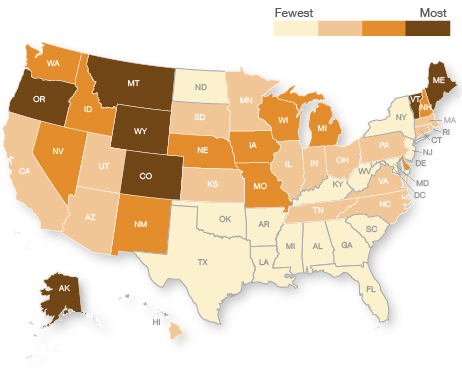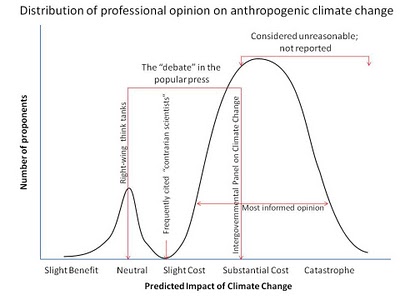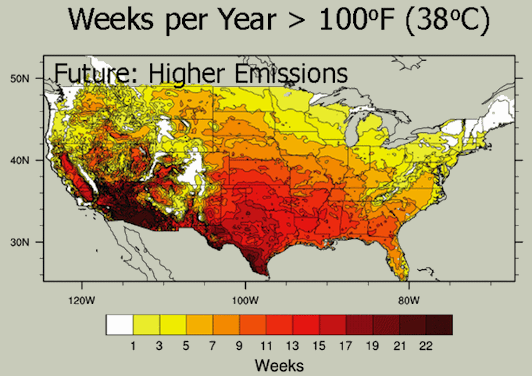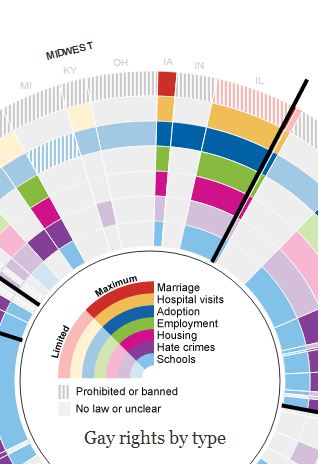Home to O'Hare: 39 minutes
Taxi to the other side of security: 6 minutes
TSA checkpoint to free drink at the club: 9 minutes
The weather is nearly perfect (for flying, anyway; I think it's too hot already), so I don't anticipate any delays flying out. And Air Force One doesn't get here until tonight, six hours after I leave. So, depending on Route 92, this might be one of my easiest trips ever. (It's got to be easier than the last time I flew.)
So, after hearing non-stop for a week about the massive disruptions due to the NATO summit, it turns out I have an hour to kill.
That's why I have This American Life on my iPod.
That said, I am kind of disappointed I won't get to see any of the world leaders. The Tribune reports that Pakistan's Zadari, Afghanistan's Karzai, and France's Hollande will all be here later today. And, as I've already mentioned, the big guy himself arrives at 8:45pm.
Update: Yikes! He's following me!
On Wednesday, the President ... will travel to California for campaign events in Atherton and Redwood City. The President will spend the night in San Jose, California.
On Thursday, the President will attend a campaign event in Palo Alto, California. ....
Two unrelated but interesting items. First, Walter Russel Meade rings down the curtain on OWS:
To some degree, it was killed by its “friends.” The tiny left wing groups that exist in the country jumped all over the movement; between them and the deranged and occasionally dangerous homeless people and other rootless wanderers drawn to the movement’s increasingly disorderly campsites, OWS looked and sounded less and less like anything the 99 percent want anything to do with. At the same time, the movement largely failed to connect with the African American and Hispanic churchgoers who would have to be the base for any serious grass roots urban political mobilization. The trade unions picked up the movement briefly but dropped it like a hot brick as they found the brand less and less attractive.
It is as if the Tea Party had been taken over by the Aryan Brotherhood and delusional vagrants while failing to connect with either evangelical Christians or respectable libertarians. The MSM at one point was visibly hungering and thirsting for exactly that fate of marginalization to happen to the Tea Party, and the MSM did its klutzy best to tar the Tea Party with that kind of Mad Hatter extremism. The Tea Partiers by and large (not always or cleanly) escaped the fatal embrace of the nutters and the ranters on their side of the spectrum; OWS was occupied by its own fringe, and so died.
On a happier note, NPR had a quick hit on craft brewing:
Beer production has been flat in the U.S. for decades — it's actually a tiny bit lower than it was 30 years ago (find a comprehensive data set here). And the number of big breweries has gone down.
But over the same time, the number of small, independent breweries in America has exploded. ... Craft breweries account for more than 95 percent of the breweries in America, but they make just 6 percent of the beer.
And here's a map of craft breweries per capita by state:

Via Sullivan, a suggestion from Dan McAdams about the difficulties some people have accepting natural selection theory:
A story is a narrative account of a motivated character who acts to achieve certain goals or ends over time. Every great story you can think of—from Homer’s Iliad to your favorite television show—involves characters who pursue goals over time, characters who want something and set out to achieve it. In this sense, the classic biblical creation stories are very good stories. You have a main character—God, the creator—who sets out to achieve something over time. There is purpose and design to what God, the main character, does. God is an agent—a self-conscious, motivated actor. All stories have agents.
Evolutionary theory, however, is not a story in that there is no prime agent, no self-conscious and motivated main character who strives to achieve something over time. For this reason, there is no overall narrative arc or design, no purpose that is being achieved by a purposeful agent. Instead, you have random, mechanical forces—variation, selection, and heredity. Bad story! But, at the same time, extraordinarily brilliant and elegant theory, for it provides a compelling and scientifically testable explanation for life on earth.
This dovetails well with a book I read two weeks ago, Chris Mooney's The Republican Brain. Mooney doesn't suggest that people who deny the obvious—like evolution or climate change—are stupid; rather, they have compelling psychological and historical reasons for believing what people like them tell them. Mooney makes it clear that we need better stories, better narratives, to help people understand and accept the counter-intuitive ways the world actually works. But McAdams has a point: some people need narratives, and narratives need actors. Natural selection works without any conscious intervention. Climate change happens because of billions of diverse actors.
Pointing out how people have got things wrong doesn't work. We need to speak the same language.
Or, as Krugman puts it, Eurodämmerung:
Some of us have been talking it over, and here’s what we think the end game looks like:
1. Greek euro exit, very possibly next month.
...
4b. End of the euro.
And we’re talking about months, not years, for this to play out.
Good thing I only have about €15 in cash. Though I do have some escudos and pesetas somewhere...
It looks like we're not hearing the truth about anthropogenic climate change. Who's keeping the lid on the data? Climate scientists:
Climate scientists have been consistently downplaying and underestimating the risks for three main reasons. First, their models tended to ignore the myriad amplifying carbon cycle feedbacks that we now know are kicking in (such as the defrosting tundra).
Second, they never imagined that the nations of the world would completely ignored their warnings, that we would knowingly choose catastrophe. So until recently they hardly ever seriously considered or modeled the do-nothing scenario, which is a tripling (820 ppm) or quadrupling (1100 ppm) of preindustrial levels of carbon dioxide over the next hundred years or so. In the last 2 or 3 years, however, the literature in this area has exploded and the picture it paints is not pretty (see “An Illustrated Guide to the Science of Global Warming Impacts: How We Know Inaction Is the Gravest Threat Humanity Faces").
Third, as Blakemore (and others) have noted, the overwhelming majority of climate scientists are generally reticent and cautious in stating results — all the more so in this case out of the mistaken fear that an accurate diagnosis would somehow make action less likely. Yes, it’d be like a doctor telling a two-pack-a-day patient with early-stage emphysema that their cough is really not that big a deal, but would they please quit smoking anyway. We live in a world, however, where anyone who tries to explain what the science suggests is likely to happen if we keep doing nothing is attacked as an alarmist by conservatives, disinformers, and their enablers in the media.

The post goes on to outline how much fun life will be in 80 years when, if we do nothing, global temperatures will be 5–7°C warmer than now. A related article goes into more depth, and includes this chart of what summers might be like:

I'll wrap up by linking to yesterday's Science Friday, which discussed the appalling lack of scientific literacy in government. And the band played on...
Leave it to a British newspaper to create such a clear diagram of states' policies:

On the same subject, Illinois Governor Pat Quinn today promised to pass a gay-marriage law...someday:
Supporters of the gay marriage bill pending in the Illinois House aren't likely to call it for a vote before lawmakers are scheduled to go home May 31.
"I think we have a few other things on our plate, like pensions, health care, Medicaid, public safety, education, the state budget, and I think that's going to take all of our time and attention," said sponsoring Rep. Greg Harris, D-Chicago.
Rick Garcia, director of the Equal Marriage Illinois project at The Civil Rights Agenda, put it more succinctly: "There has been a same-sex marriage bill out there since maybe 2006 in Springfield, and it's going nowhere fast."
If a vote were to happen, it likely wouldn't come until after the Nov. 6 election. The House and Senate will have a number of lame-duck lawmakers who are either retiring or lost re-election bids. They're more free to vote their conscience even if it diverges from the views of the people who elected them.
Oh, well. At least we have civil unions here.
The President's announcement yesterday and a new ad this morning make it clear the election 179 days from now is about the future vs. the past:
Sullivan comments:
One small note. Above, Romney says that we should not discard 3,000 years of history of one-man-one-woman marriage. Ahem. His own family were ardent polygamists only a century ago - and went to Mexican colonies to escape US federal oppression of their version of marriage (which also goes back a long, long way and still exists across the world). Romney's great-grandparents were polygamists; one of his his great-great-grandfathers had twelve wives and was murdered by the husband of the twelfth.
For Romney to say that the definition of marriage has remained the same for 3,000 years is disproved by his own family. It's untrue. False. A lie.
Why people fight so hard to cause other people pain has never made sense to me.
The President's stance has evolved:
Question: when will Romney say something?
I'm not the only one who sees Richard Lugar's defeat last night as more evidence the Republican party, long unmoored from reality, has drifted to the edge of the flat world they inhabit. It turns out, Lugar sees the same thing:
[Republican U.S. Senate nominee Richard Mourdock] and I share many positions, but his embrace of an unrelenting partisan mindset is irreconcilable with my philosophy of governance and my experience of what brings results for Hoosiers in the Senate. In effect, what he has promised in this campaign is reflexive votes for a rejectionist orthodoxy and rigid opposition to the actions and proposals of the other party. His answer to the inevitable roadblocks he will encounter in Congress is merely to campaign for more Republicans who embrace the same partisan outlook. He has pledged his support to groups whose prime mission is to cleanse the Republican party of those who stray from orthodoxy as they see it.
But wait, there's more:
I don't remember a time when so many topics have become politically unmentionable in one party or the other. Republicans cannot admit to any nuance in policy on climate change. Republican members are now expected to take pledges against any tax increases. For two consecutive Presidential nomination cycles, GOP candidates competed with one another to express the most strident anti-immigration view, even at the risk of alienating a huge voting bloc. Similarly, most Democrats are constrained when talking about such issues as entitlement cuts, tort reform, and trade agreements.
Says Robert Wright, "It almost sounds as if he thinks Republicans are a bigger part of the problem than Democrats."
In unrelated news, Sunday was the 75th anniversary of the Hindenburg disaster. I mention this only because the Atlantic had a side-bar on the Lugar story, and I thought it was interesting. Yay Internet, helping people forget what they were mad about!
Update, from Mourdock: "I have a mindset that says bipartisanship ought to consist of Democrats coming to the Republican point of view."
Yep, that sounds like an accurate view of the Republican party.